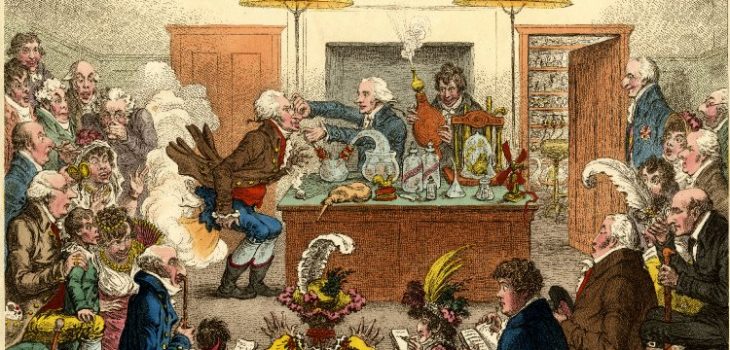Like most books in the Library’s Special Collection our copy of A Treatise on the Plague by A.B. Faulkner, published in 1820, was acquired secondhand. This was probably purchased from an antiquarian bookseller by our first librarian, Cyril Barnard, who was actively adding books of importance to the history of tropical medicine and public health to the library. This particular copy is especially interesting because it contains internal evidence showing its provenance can be traced back to its first owner, the eminent British scientist Sir Humphry Davy, before it passed to his wife, Lady Jane Davy.
A Treatise on the Plague, 1820, was written by Arthur Brooke Faulkner (1779-1845). Faulkner was a military physician, serving with the British forces in Malta where there was an outbreak of plague in 1813. There was no known treatment but by introducing a system of quarantine to control the spread of the disease Faulkner averted a disaster. For his swift action Faulkner was knighted in 1815. Afterwards Faulkner wrote A Treatise on the Plague based on his experience in Malta. The copy in the library is inscribed on a flyleaf : ‘To Sir Humphry Davy Bart with the authors (sic) respects’.
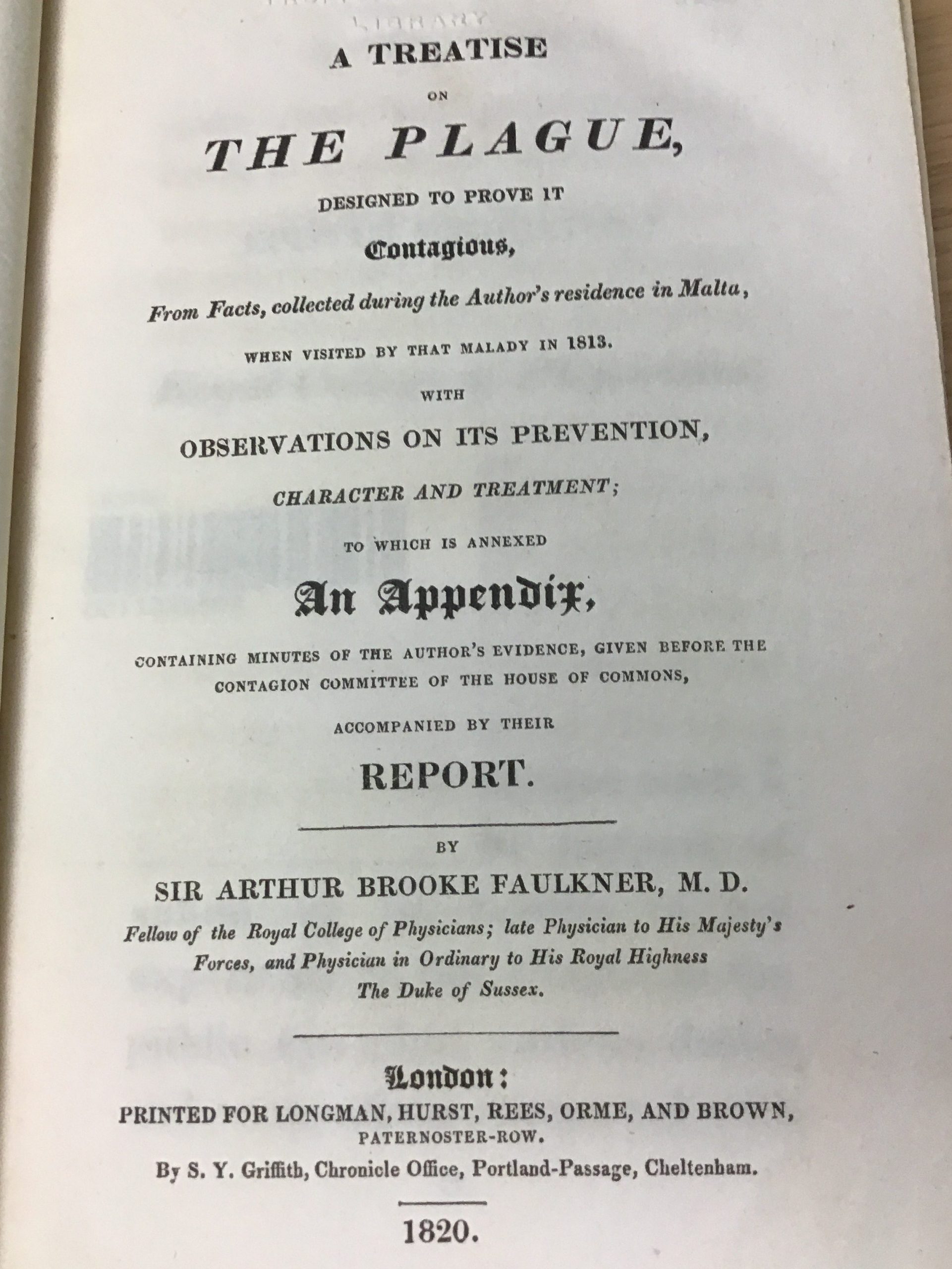
Sir Humphry Davy (1778-1829) made a number of significant scientific discoveries, with the invention of the coalminers’ safety lamp being the one for which he is best known. Davy trained as a physician but his expertise was in chemistry and he experimented with many substances. There were many accidents but these were considered to be part of the course in the race to get the right results.Davy discovered the anaesthetic properties of nitrous oxide by testing it on himself in 1795 and suggested the gas could be used during surgical operations to relieve pain (Davy 1800). Davy also disproved that the gas was a contagium of plague as some physicians alleged (Boulton 1998).
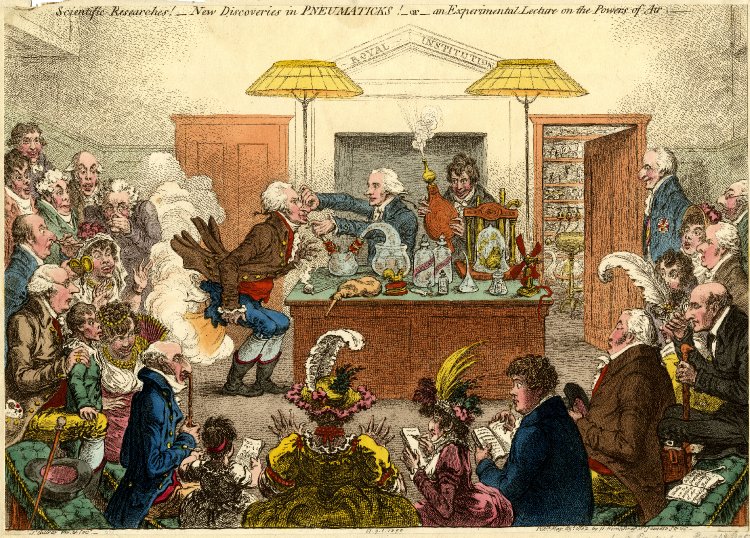
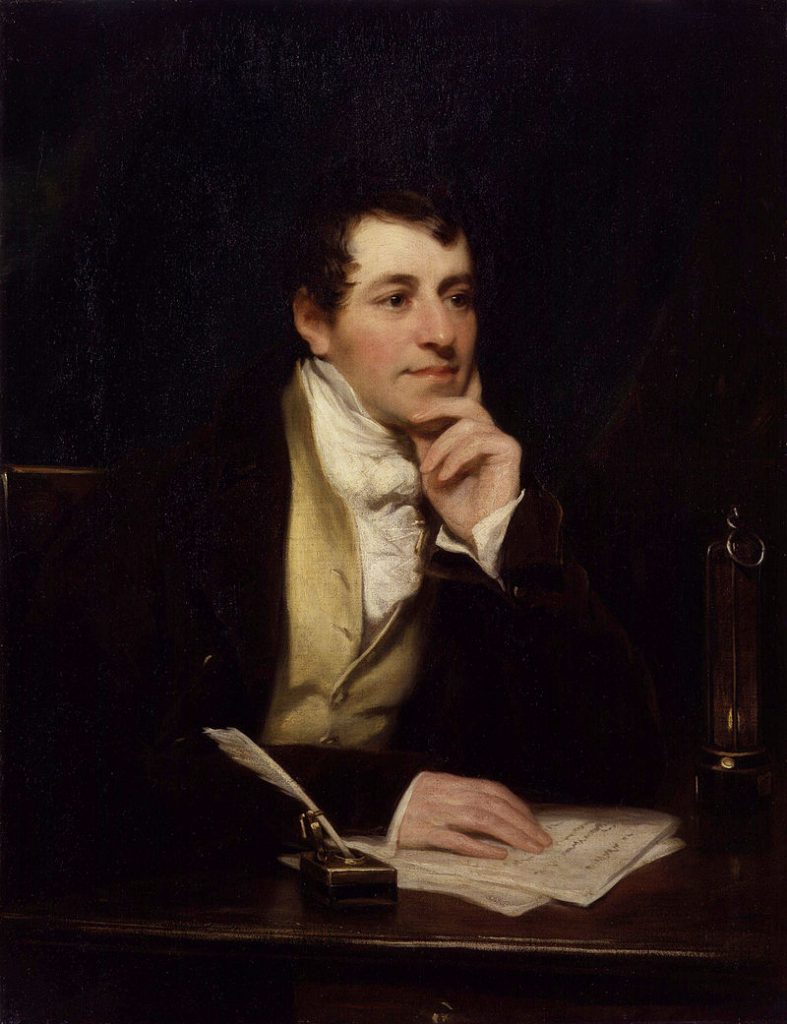
In 1820, when Faulkner published his book, Davy was poised to be elected the next President of the Royal Society following the death in 1820 of the naturalist Sir Joseph Banks (1743-1820).
Lady Davy (née Kerr) (1780-1855) was a wealthy widow, Jane Apreece, when she married Davy in 1813. ‘Her wealth enabled Davy to retire from routine work (in 1813 he resigned his Royal Institution professorship) and devote himself, … , to chemical researches’ (Forgan 2004 : 512). The couple travelled in Europe but increasingly their lives went in different directions. After Davy died in Geneva in 1829 Lady Davy had her bookplate pasted inside the front cover of Faulkner’s book.
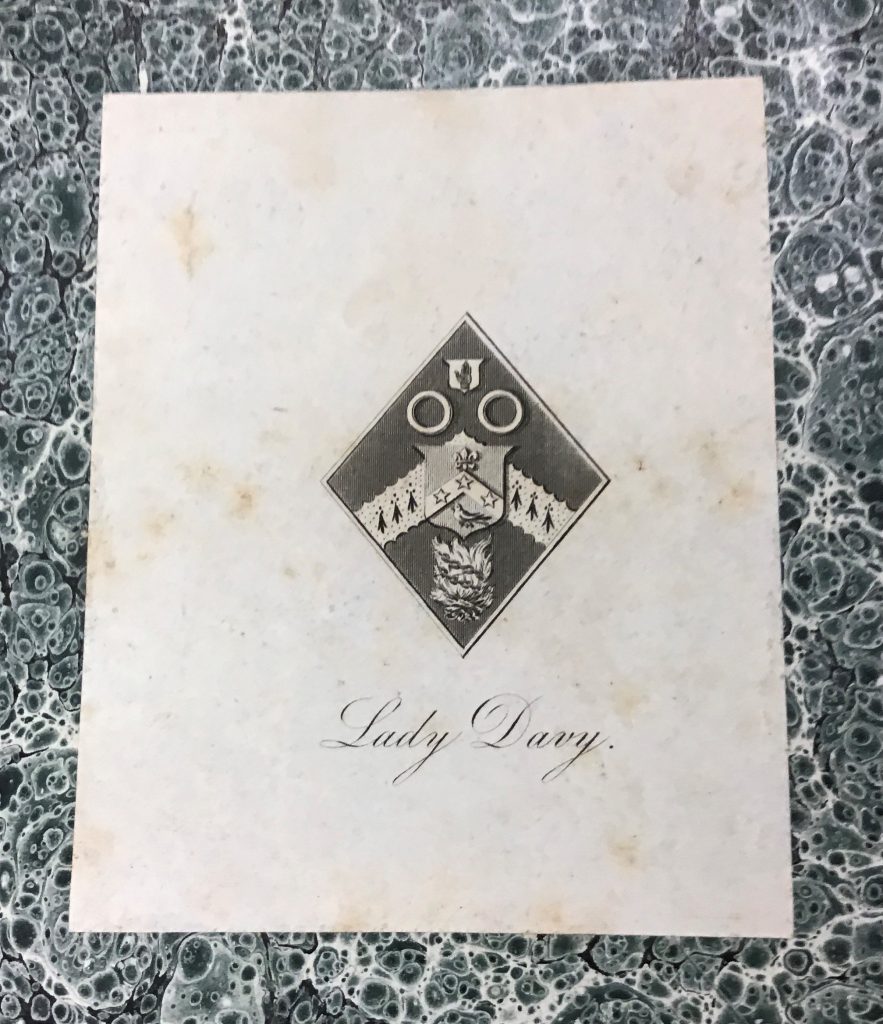
Lady Davy lived another 26 years and died in London in 1855. The whereabouts of the book remained unknown after it left Lady Davy’s Library until 24 September 1925 when it was acquired by this Library. Although now 200 years old, the book is still in excellent condition in an olive-green full leather binding with blind tooling decorating the boards and some gold tooling, raised bands and a red leather lettering piece on the spine. Inside the binding is completed by marbled endpapers and a similar marbled pattern on the edges of the text.
References:
BOULTON, T.B., 1998. Pain and analgesia for operative interventions – from the beginning up to 1846, pp. 35-55, in SCHULTE AM ESCH, J. & GOERIG, M. (editors), The History of Anaesthesia : The Fourth International Symposium on the History of Anaesthesia : Proceedings. Lübeck : DrägerDruk. (Not seen).
DAVY, Humphry, 1800. Researches, chemical and philosophical, chiefly concerning nitrous oxide. London : J. Johnson. (Not seen).
FAULKNER, Arthur Brooke, 1820. A Treatise on the Plague, designed to prove it contagious, from facts, collected during the Author’s residence in Malta, when visited by that malady in 1813. With observations on its prevention, character and treatment. To which is annexed an Appendix , containing minutes of the author’s evidence, given before the Contagion Committee of the House of Commons, accompanied by their Report. London : Printed for Longman, Hurst, Rees, Orme, and Brown. (LSHTM Library *JN 1820)
FORGAN, Sophie, 2004. Davy [née Kerr] Jane, Lady Davy, pp. 512-513, Oxford Dictionary of National Biography 15.
LSHTM Library Rare Books Collection Blogs is an occasional posting highlighting books that are landmarks in the understanding of tropical medicine and public health. The Rare Books Collection was initiated by Cyril Cuthbert Barnard (1894-1959), the first Librarian, from donations and purchases, assisted with grants from the Carnegie United Kingdom Trust. There are approximately 1600 historically important rare and antiquarian books in the Rare Books Collection.
Many of the LSHTM Library’s rare books were digitized as part of the UK Medical Heritage Library. This provides high-quality copyright-free downloads of over 200,000 books and pamphlets for the 19th and early 20th century. To help preserve the rare books, please consult the digital copy in the first instance.
If the book has not been digitized or if you need to consult the physical object, please request access on the Library’s Discover search service. Use the search function to find the book you would like to view. Click the title to view more information and then click ‘Request’. You can also email library@lshtm.ac.uk with details of the item you wish to view. A librarian will get in touch to arrange a time for you to view the item.
Researchers wishing to view the physical rare books must abide by the Guidelines for using the archives and complete and sign a registration form which signifies their agreement to abide by the archive rules. More information is available on the Visiting Archives webpage.






